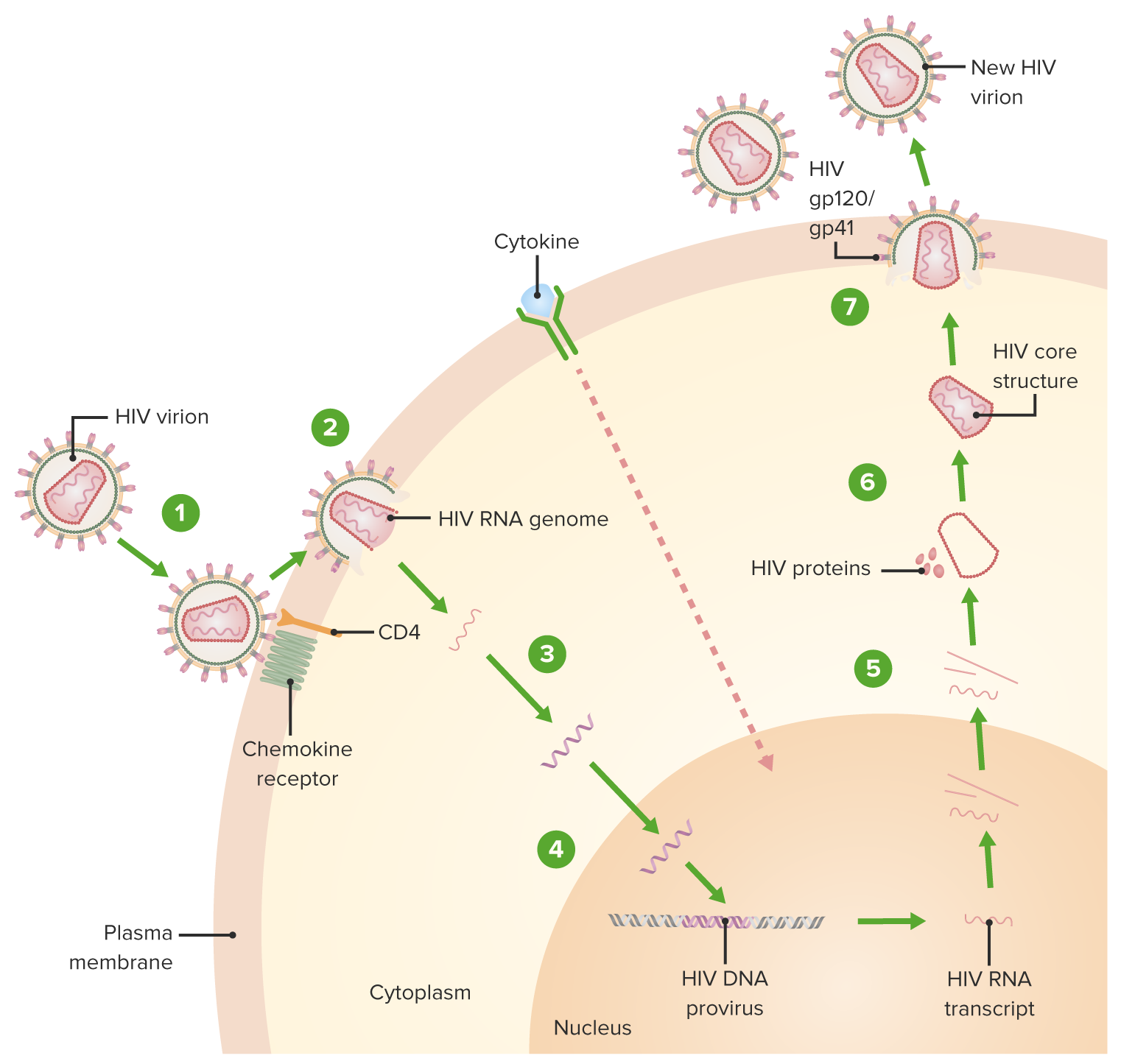Playlist
Show Playlist
Hide Playlist
Anti-HIV Agents: Other Inhibitors – Antiviral Drugs
-
Slides Anti-HIV Agents Other Inhibitors Antiviral Drugs.pdf
-
Reference List Pharmacology.pdf
-
Download Lecture Overview
00:01 The last group is just - it’s a hodge-podge of a whole bunch of different mechanisms and I just put them in as others. 00:09 I won't spend too much time on them just suffice it to say that there are uncoating inhibitors that we're currently investigating, there are TAT inhibitors that work on transcription, there are translation inhibitors, there are DNA polymerase inhibitors and in my other category I have yet another category which can be a whole bunch of different target modalities. 00:36 Now, I would just want to mention something, it says they're CRISPR - I'm sure you've heard about CRISPR, it’s the next greatest thing in genetic modification and we are actually starting to use CRISPR therapies in HIV by modifying both viral and patient genomes so that’s hopefully someday we’ll be able to have CRISPR therapies to modify the genome so that humans will become immune to HIV. 01:07 CRISPR technology is revolutionizing disease treatment by allowing precise gene editing to correct genetic mutations, such as those causing sickle cell anemia and beta thalassemia. 01:18 It is also enhancing cancer therapies through the modification of T cells in CAR-T immunotherapy, improving their ability to target and destroy cancer cells. 01:30 Additionally, CRISPR is being explored for treating viral infections and neurological disorders, offering the potential to disrupt viral genomes and correct mutations linked to conditions like Huntington's disease. 01:43 So CRISPR is the next best thing in genotherapy, and I think it may have a role in HIV as well. 01:48 ZFTF stands for zinc finger transcription factors. 01:52 In HIV therapy, they have the potential to repress HIV replication, reactivate latent HIV to expose the virus, and help excise HIV1 per viral DNA.
About the Lecture
The lecture Anti-HIV Agents: Other Inhibitors – Antiviral Drugs by Pravin Shukle, MD is from the course Antimicrobial Pharmacology.
Included Quiz Questions
Which medication is a DNA polymerase inhibitor?
- Foscarnet
- TRIM5alpha
- Tricosanthin
- Lamivudine
- Ritonavir
Customer reviews
5,0 of 5 stars
| 5 Stars |
|
5 |
| 4 Stars |
|
0 |
| 3 Stars |
|
0 |
| 2 Stars |
|
0 |
| 1 Star |
|
0 |





